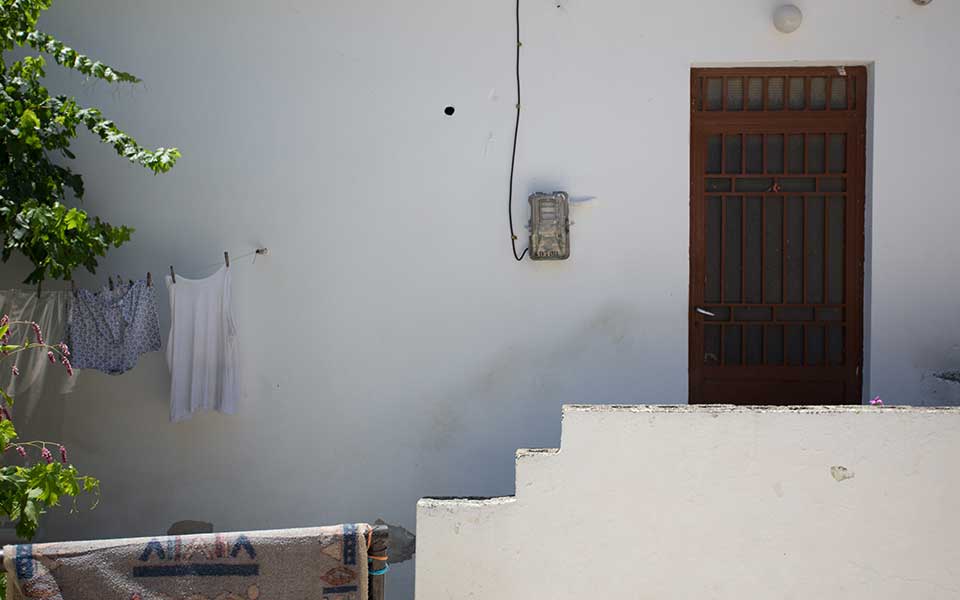We all had a country home once, and it seems like Covid-19 has forced many of us to go back to them, only to realize that they were never just houses, or vacation destinations: our country homes were, and remain, wellsprings of emotion.
Ours was in Chalkoutsi; it belonged to my grandparents on my mother’s side. It was a small house with sunken bedrooms and a marble sink, built on a lot with pistachio trees along a dirt road that ran straight down to the sea. Although I wasn’t more than 12 years old when inheritance issues arose and forced us to sell it, I still remember what it smelled like. It’s a scent I can’t quite define, something between slight staleness – when we opened it at the end of spring for the first time of the year – mothballs, suntan lotion and the sea. I hardly ever encounter this smell nowadays but when I do, it’s like time stops and I’m eight years old again, trying to sleep in the afternoon with my shutters ajar, and the cicadas deafening me. It’s like my very own “madeleine dipped in tea” that awakens childhood memories in Marcel Proust’s In Search of Lost Time.
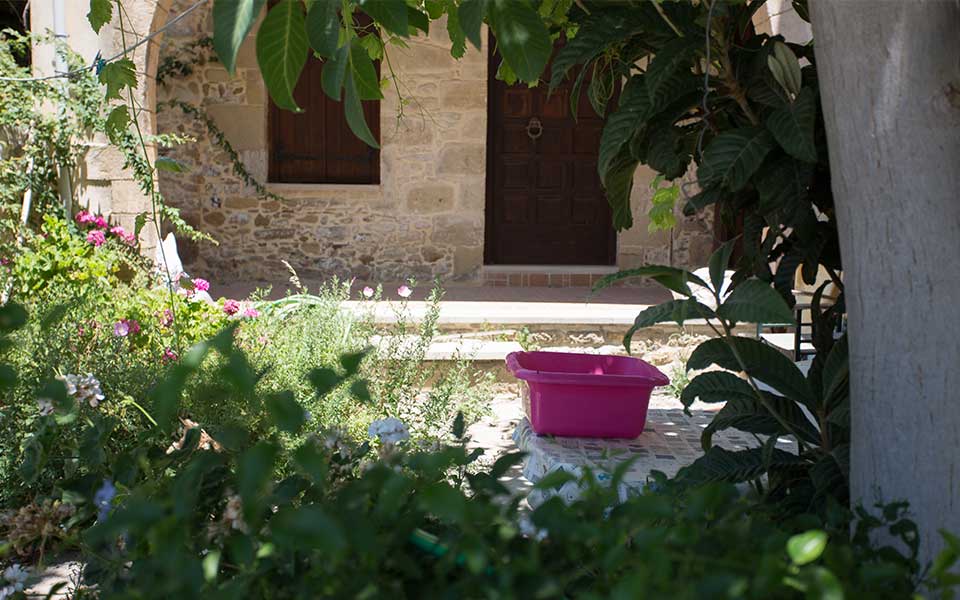
© Shutterstock
A smell, a taste, or an image related to a country home can trigger a similar emotion in everyone because, in a way, we all had a country home once. We’ve all spent a childhood summer in a country home at some point, whether that house belonged to us, our extended family or even just our friends. It might have been just a short distance from our regular home, or it might have been far from it, but either way, for some reason time would stop there, and it would always be summer.
Instead of “Where are you going on vacation?”, the question back then was “Where is your summer residence?”, and these country homes were the ultimate summer destinations before the islands became really popular – before the ’80s, the islands were a rather exotic choice for most. In the summer of 2020, the Covid-19 summer, it seems like country homes are becoming fashionable again and, just as balconies became “the new outside” during lockdown, country homes are now becoming “the new vacation destination.”
It might, therefore, be a good time to hear from some of those who are coming back to this type of vacation, as well as those who’ve kept it a habit all their lives. What you’ll note is that, despite their differences, everyone speaks about these summer homes with the same tenderness – those who come to them by choice as well as those who do it from necessity.
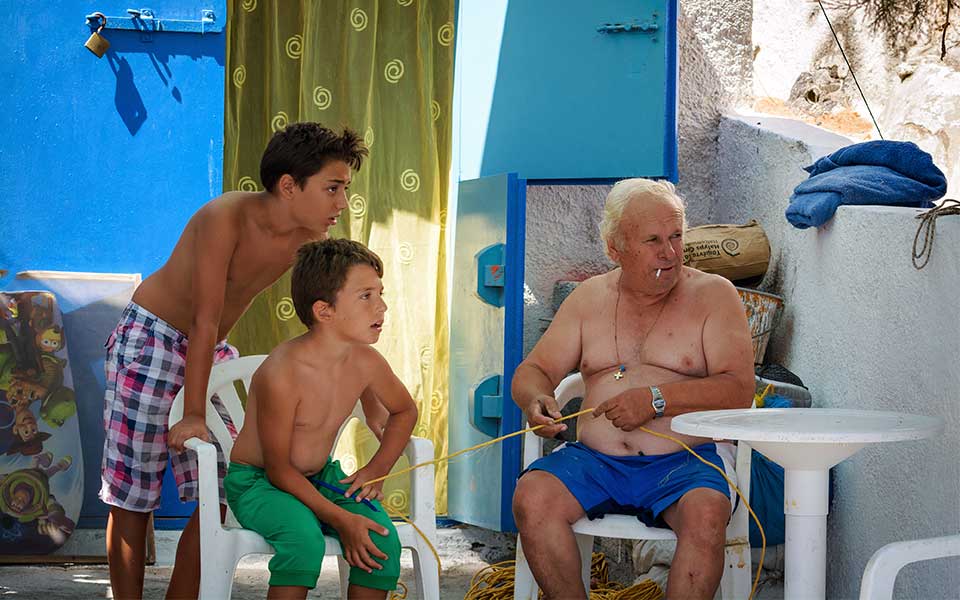
© Shutterstock
“We’ll sleep in our own sheets”
“A lot of people come every year,” Ioanna says about Saronida, where her grandparents bought an apartment in1969 to use as summer residence. Development in the area had just begun and the 35m2 apartment was in the third or fourth new complex to be built there. Ioanna’s grandparents discovered the region through friends, who were their neighbors in Kallithea. As it turned out, their purchase started a trend: from that moment on, it seemed like their whole neighborhood began to slowly transport itself south.
“My grandparents were still working when they bought the apartment, and my mother was finishing high school. They took out a loan and bought the smallest of all the apartments. My mother said that my grandfather wasn’t able to rest until he paid back the loan, and that this was the reason he hadn’t picked a bigger apartment. The year my mother was pregnant with me, she and my dad rented a different apartment in the same building. I’ve been going there ever since. The more I grow up, the more obsessive I get, I’d say. There are many reasons for how I feel but the main one is sentimental. It is a place that brings no bad memories. It was also the perfect solution whenever I realized that I didn’t have enough in the bank for more than five or six days’ worth of vacation elsewhere. This year, I’ve heard about many people looking for a place to rent. The fact that we are going on vacation in our own car and will sleep in our own sheets makes me feel like it’s a safe hideout from the coronavirus.”
Everybody has a similar, often old-fashioned, daily ritual: the morning and/or afternoon swim, the after-lunch siesta, the café in the afternoon, the open-air cinema in the evening. The demographics, although altered by faster access and higher visitor numbers due to new road networks such as the Attiki Odos, is still similar to that of earlier days; grandparents watch after grandchildren throughout the summer while parents come and go every Friday and Sunday evening respectively. Families, fully equipped with the latest summer accessories, descend towards the beaches with youngsters in tow while their lively teenagers congregate separately, and sun-kissed girls head out for evening strolls around the square or along the road by the sea which, in the evening, becomes a pedestrianized street.
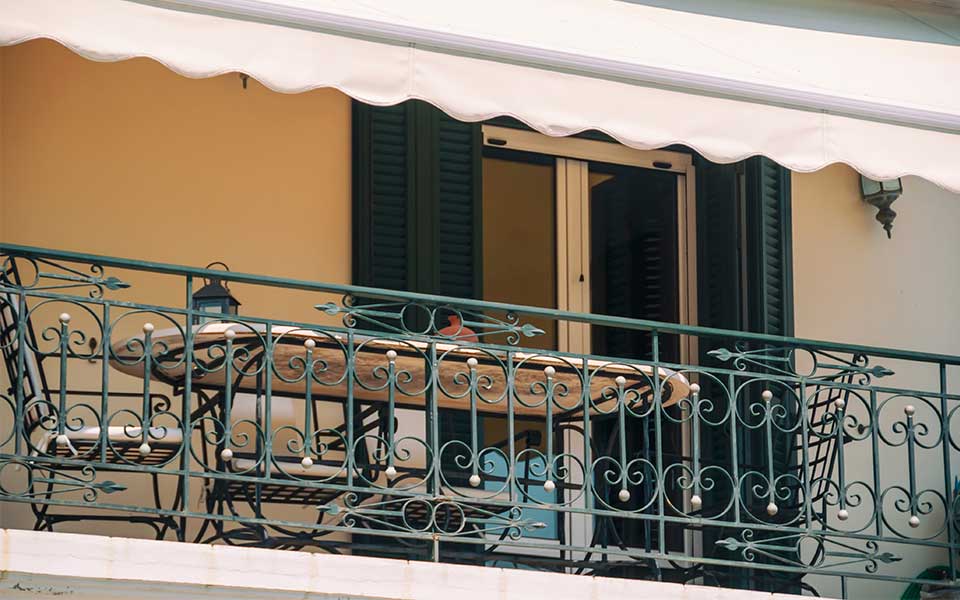
© Shutterstock
The table on the terrace
“I think they enjoyed the house a lot,” Ioanna says, talking about her grandparents. “They went as often as they could, lent the keys to friends, and always found ways to host an astonishing amount of people. They even lowered the balcony shades and tied them to the corners to turn that space into a room.” Country homes can always fit many more people than what they were built for. It’s where sleepovers and pyjama parties were invented; a friend of mine even slept in the bathtub once. “What’s more,” Ioanna continues, “although it sounds a little cruel, I’ve never hosted anyone I didn’t love.” That’s another blessing of the country home. Countless lifelong friendships were born here, a place where the whole vacation is summed up around the summer table on the terrace.
“I don’t think I’ve ever seen my father wearing a t-shirt in the country house,” Maria says with a laugh, talking about their house in Nea Makri, 100 meters from Marathonas Beach. This, too, was summer: shirtless dads, outdoor showers, and bathing suits set out to dry and blown away by the wind, only to be discovered later in the garden among the lemon trees.
“We went there as soon as school finished, and we left a few days before it started again. I remember that when the first rains began, we knew that we’d have to pack for Athens very soon. All my summer memories, from that time on, are based in this house. It’s where I met my husband-to-be when I was 16 years old, where I formed my first groups of friends as a teenager, where I celebrated all my birthdays; I came out from this country home dressed as a bride,” Maria says, showing me the photographs that prove it. The yellowish photos taken with an ’80s Kodak remind me of all family photos I’ve seen that were taken in a county house. She still goes there today, with her husband and her eight-year-old son. “Time stood still there. You wouldn’t talk about the winter, nobody knew what grade you were in or, later, what your job was. It was a bit like this uncle we all have, who doesn’t know that much about us but loves us very much.”
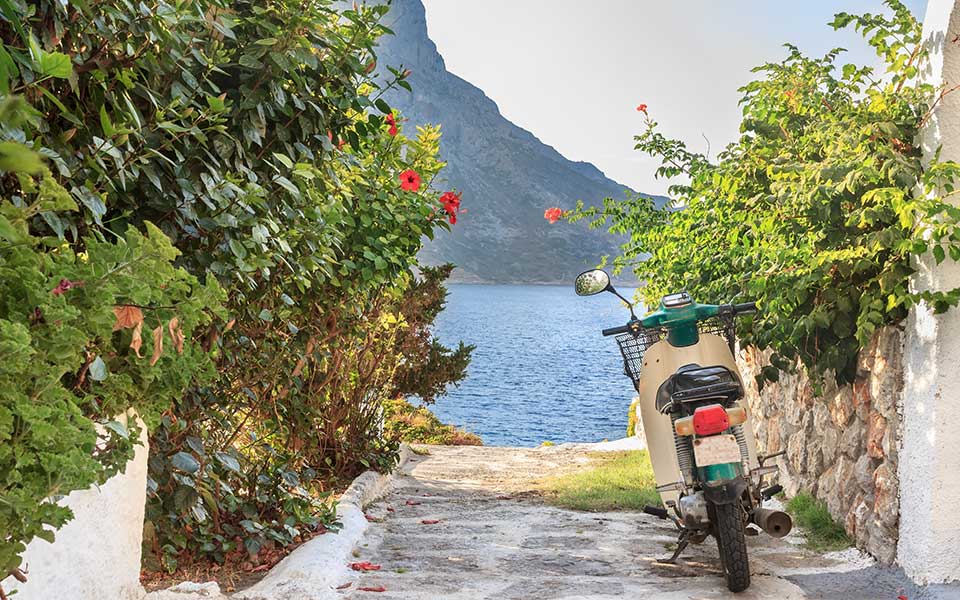
© Shutterstock
The power of nostalgia
“Dad bought our country house in Lagonisi in 1990, somewhat by chance, when he was looking to buy a fishing boat. I still remember us sleeping there with friends when it was under construction. I remember the worker who planted tomatoes instead of laying tiles, and the first immigrants from Albania who, paradoxically, found a family in us – when the first floor of the house was built, my father let them stay on the ground floor in exchange for small chores,” Maro says. “I spent nearly all my school-year weekends there.
Every child that’s had a country home feels emotionally attached to it. There was a feeling of freedom about it, especially during the ’90s, when it seemed nobody was worried. It was as if problems didn’t exist, and the only thing on the minds of grown-ups was to have fun with their friends. Even today when I go there, I feel like I’m coming back to a safe environment, and not just because of Covid-19. My country home takes me back to the simplicity and the essence of vacation. I was there a few days before the lockdown started and ended up staying two months together with my sister. I saw lights on in houses I’d never seen inhabited before. People turned to their country homes even before the summer season began. The peace and quiet there was the antidote to the negative atmosphere and pressure that prevailed; it was a safe place.”
Back in Nea Makri, Maria is looking at the photographs that she has scattered across the table. “Time stops in the same way now, just like when we were kids. We go back to our routines. A country house is a universe in itself.” But not is the same. “Now, most country houses have become Airbnbs. Our small universes are up for rent.”
This article was first published in Greek on ekathimerini.com

